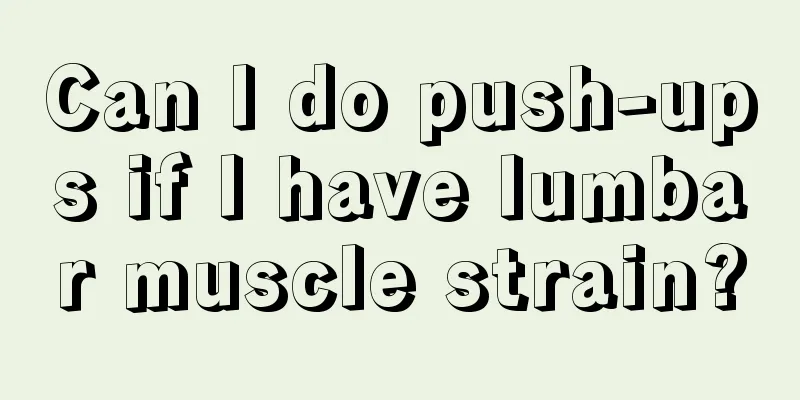What to do if you get injured while running?

|
Nowadays, many people take to running and other sports to achieve fitness effects. Running is a very simple form of exercise, but the effect is very significant. If you can stick to it, it can have a good fitness effect. However, many people often suffer physical injuries during running, such as sprained feet, stomach pain, muscle soreness, etc. So how to deal with running injuries? Let’s take a look together! Treatment of common sports injuries in running Running for fitness may seem simple, but if the movements are not standardized, sports injuries may occur. Therefore, if you want to “run” to be healthy, you also need to run healthily. When running, we often encounter pain of one kind or another. That is the body reminding us: something is wrong! What went wrong? The main reason for stomach pain is not doing warm-up exercises before formal exercise. The heart is too inert to adapt to the exercise load, causing respiratory muscle disorders and "stuck in the side"; or after eating or drinking, the mesentery is over-stretched. Prevention: Slow down, adjust your breathing rhythm, and deepen your breathing. Pressing with your hands at the same time can relieve pain. The most common ankle sprain is caused by falling or slipping while running. After diagnosis and treatment by a doctor, generally speaking, there must be a 2-3 month recovery period. You must wait until it is completely healed before running again, otherwise you may sprain your ankle again and the symptoms will worsen. Muscle Soreness People who have just started running usually feel sore and stiff muscles in the thighs and calves. As long as they apply soothing ointment and massage after taking a shower, they will recover quickly. After getting used to running, the muscle pain will naturally disappear. Overtraining can also cause muscle pain. At this time, you should shorten the running distance or consider stopping this sport. Calf muscle soreness is a normal physiological phenomenon during exercise. While muscles contract and generate energy, a series of changes also occur within the muscles, including the decomposition of adenosine triphosphate, creatine phosphate, and glycogen to release energy. If the intensity is too high, blood circulation cannot keep up, oxygen supply is insufficient, and lactic acid accumulates, which will stimulate the nervous system and cause pain. Treatment: Soak feet in hot water, massage, and wash legs. Knee pain Excessive pressure on the knee will cause pain, and in severe cases, it will swell and accumulate fluid. If the pain does not improve after adequate rest, seek medical attention as soon as possible. Treatment: Get plenty of rest and seek medical treatment. Muscle spasm, commonly known as leg cramps, is a phenomenon in which rigid muscle contraction cannot be relieved and relaxed. More common in winter. When it is cold, if you do not do warm-up exercises, or if your calf muscles are exposed to cold, it can cause muscle soreness. Treatment: warming, traction, massage. Chest pain. Uneven breathing during exercise, not breathing through the nose, inhalation of cold air into the lungs, pulmonary vasoconstriction, blood circulation disorders, running with the chest held high for a long time, and continuous tension in the chest can all cause chest pain. Prevention: Breathe through your nose and keep warm during exercise. Achilles tendonitis Achilles tendonitis refers to damage to the deep fascia on the dorsal side of the Achilles tendon, the synovial layer between the tendon tissue, and its connective tissue, causing blood circulation disorders and leading to damaging inflammation of the tendon circumference and tendon tissue. Uneven or hard sports surfaces may cause Achilles tendonitis. Various problems are often encountered during fitness exercises. In fact, no matter what the problems are, they cannot hinder the charm of exercise. The above are some problems about running injuries that the editor has collected and sorted out for everyone, how to deal with them and how to prevent them. I hope the editor’s introduction can be of great help to you. You must pay great attention to them during the exercise process. |
<<: Why do I feel sore all over after exercise?
>>: Can I exercise one hour after a meal?
Recommend
How to train your arm explosive power
Arm explosive power is not only something that we...
Is skipping rope good for you?
There are many benefits of skipping rope, such as...
How to exercise strength effectively?
Everyone wants to have a proud figure and toned m...
What exercises can improve sexual performance
Exercise can improve physical fitness, enhance th...
How to do breast massage
I believe that many women's dream is to have ...
What is the role of yoga?
Now more and more people are starting to learn yo...
How to do kneeling push-ups correctly
Push-ups are recognized as a good exercise for st...
Can running reduce thigh fat?
I believe everyone knows that running can help us...
Girls running fitness weight loss exercises
If you don't like "rough" sports an...
What are the effects of muscle stretching?
In our life and work, if we maintain a posture fo...
What to do if your thighs ache after exercise?
Exercise is a very good thing, because exercise c...
What are the things to pay attention to when practicing yoga?
Practicing yoga can not only help us better under...
How many jumps should you do every day to lose weight?
Losing weight has been an eternal topic for many ...
The more erect this part of a man is, the more excited a woman is.
Don't think that a perky butt is only for sum...
How to train the 8th abdominal muscle
It is indeed very enviable for male friends to ha...









